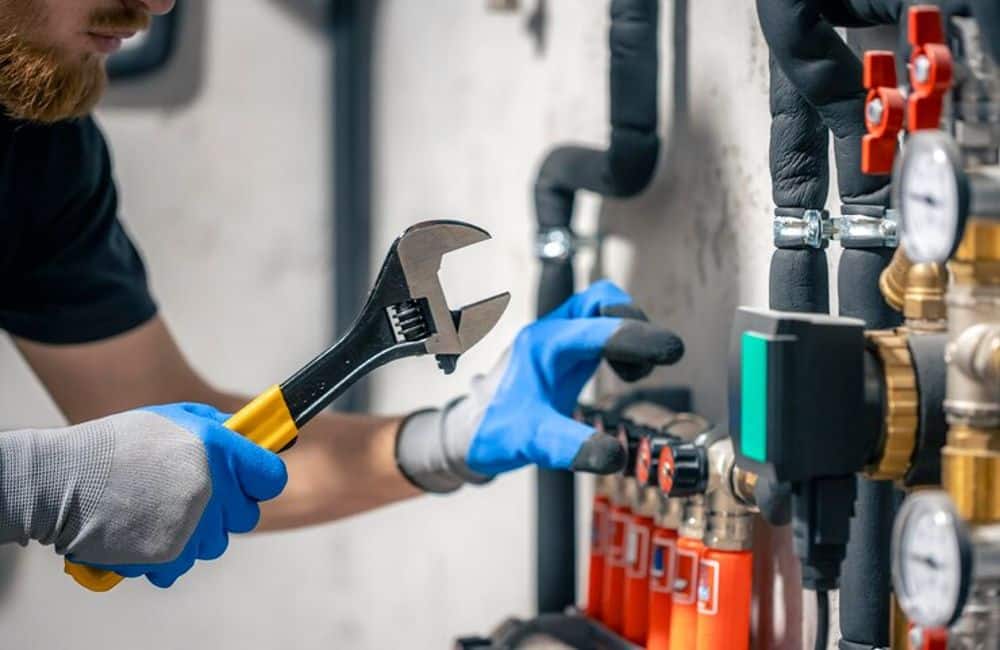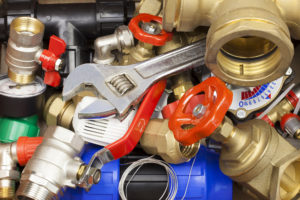Quick Fixes for Plumbing Emergencies: What to Do Until Support Arrives
Quick Fixes for Plumbing Emergencies: What to Do Until Support Arrives
Blog Article
We have discovered this article about Expert Tips for Emergency Plumbing Repairs directly below on the internet and felt it made good sense to talk about it with you in this article.

Plumbing emergency situations can strike at any moment, causing stress and anxiety and possible damages to your home. Whether it's a burst pipeline, a clogged up drain, or a leaky tap, understanding just how to handle the situation till an expert plumbing arrives can conserve you from additional complications. This write-up provides crucial emergency plumbing ideas to assist you mitigate damages and restore control throughout a plumbing crisis.
Switch off the Supply Of Water
The first step in any kind of plumbing emergency situation is to shut down the supply of water. For local problems, such as a leaking faucet or toilet, shut off the valve near the component. In the case of a significant leak or ruptured pipe, find your home's main water shut-off valve and transform it off right away. Recognizing the place of these shutoffs in advance can conserve valuable time throughout an emergency.
Address Little Leakages with Short-term Solutions
Small leakages can quickly end up being significant issues if left unchecked. Utilize these short-lived fixes up until professional assistance gets here:
While these fixes aren't permanent, they can assist decrease water loss and damage.
Unclog Drains Safely
A stopped up drain can be a discouraging and messy problem. Below's how to tackle it:
If these methods don't work, prevent making use of excessive force, as it may get worse the obstruction.
Handle Overflowing Toilets
An overruning toilet can cause instant turmoil. Below's what you should do:
Shut Off Your Water Heater
In certain emergencies, such as a burst pipe, it's a good idea to turn off your water heater. This stops getting too hot or damages to the system when water stops streaming. Shut off the power supply to the water heater (electric or gas) and let it cool down to avoid potential hazards.
Temporarily Stop a Ruptured Pipeline
A ruptured pipeline can cause considerable water damage in mins. To reduce the problem:
Call a specialist plumbing technician immediately to address the trouble completely.
Manage Frozen Pipeline Carefully
In cooler environments, frozen pipes are an usual emergency situation. If you presume a frozen pipeline:
Protect against Additional Damage
Taking fast action to decrease damages can save you money and time over time. Here's exactly how:
. Have an Emergency Situation Plumbing Package
Prepare a fundamental pipes emergency package to deal with small problems properly. Your kit needs to include:
Having these tools accessible can make a significant difference in your capability to take care of emergency situations.
Know When to Call a Professional.
While quick fixes can help temporarily, specific plumbing problems need prompt specialist focus. Call a plumber if:.
Immediately calling an expert makes sure the problem is fixed properly and avoids further problems.
Conclusion.
Plumbing emergency situations can be frustrating, yet with the ideal understanding and tools, you can manage the situation effectively till aid shows up. By shutting off the supply of water, resolving little leakages, and utilizing short-term repairs, you can reduce damage and keep your home safe. Remember, these tips are temporary options; constantly consult an accredited plumbing technician to deal with the root cause of the trouble. Preparation and quick reasoning are your finest allies in any pipes emergency situation.
8 Helpful Tips for Managing Plumbing Emergencies at Home
If your plumbing system hasn’t failed once, wait for it because almost everyone has a story to tell. Sometimes, it could be simple emergencies such as a leaking pipe, a blocked cistern, or even a big burst pipe. In situations like this, you need to have some handy tips to save you some money and from possible damages.
Take care of minor issues early.
Sometimes, you could have avoided an emergency by taking proactive measures while it was still early. Some major plumbing emergencies can be a result of an ignored minor issue. We recommend that you have items like plumbing tapes and other related items. A plumbing tape can allow you to manage minor leaks before the plumber arrives.
Cut off the water supply.
This tip is essential in almost any type of leakage problem. For problems like minor leakages in the toilet or kitchen, turn off the supply that takes water to the affected pipes. If the leakage is a major pipe, you must shut off the supply valve to the entire building. This will help you avoid flooding your home and neighbors if you share a flat.
Know your plumbing system
Folks typically move into a new apartment without understanding the water supply around the building. This can prove disastrous if a water emergency arises and the plumber is far away. The previous tip will prove useless if you don’t practice this one. More importantly, know where your water shut-off valve is located – you’ll need that knowledge to prevent potential home floods.
Have some common handy tools
There are lots of plumbing emergencies that you can handle without hiring a plumber. That’s why you must keep some tools available always. Some tools that you can use to fix simple plumbing emergencies easily include plumbing tapes, screwdrivers, thread seal tapes, plungers, pliers, tape measures, and rubber gloves.
Insulate your pipes from cold
You’ll save yourself from many plumbing expenses if you protect your water pipes from the cold. This is because of the harmful effects that cold weather can have on your pipes. During winter, your pipes can burst from being overly expected to freezing temperatures. So, make sure insulators are there to keep the pipes working correctly.
Avoid practices that will clog your toilet.
Many people indulge in practices that can damage the plumbing system of the entire building. One of these is when they use their toilet to dispose-off garbage. They flush all kinds of things, such as paper towels, bandages, hairs, female sanitary products, etc., down the toilet. This will block your toilet in the long run, incurring unnecessary expenditures. Dump such waste in the trash instead.
Check your dials regularly.
Sometimes, there could be leakages in your home without noticing them in time. So, constantly monitor your water meter dial. If the dial is reading when there is nobody using water, this is an indicator that there is leaking. Check for leaks immediately. Call a plumber as soon as possible if you can’t find any.
https://www.constructionplacements.com/8-helpful-tips-for-managing-plumbing-emergencies-at-home/

I am just very interested in Expert Tips for Emergency Plumbing Repairs and I really hope you liked our blog post. In case you enjoyed reading our page please remember to share it. Thank you for your time spent reading it.
Book A Service Call Report this page